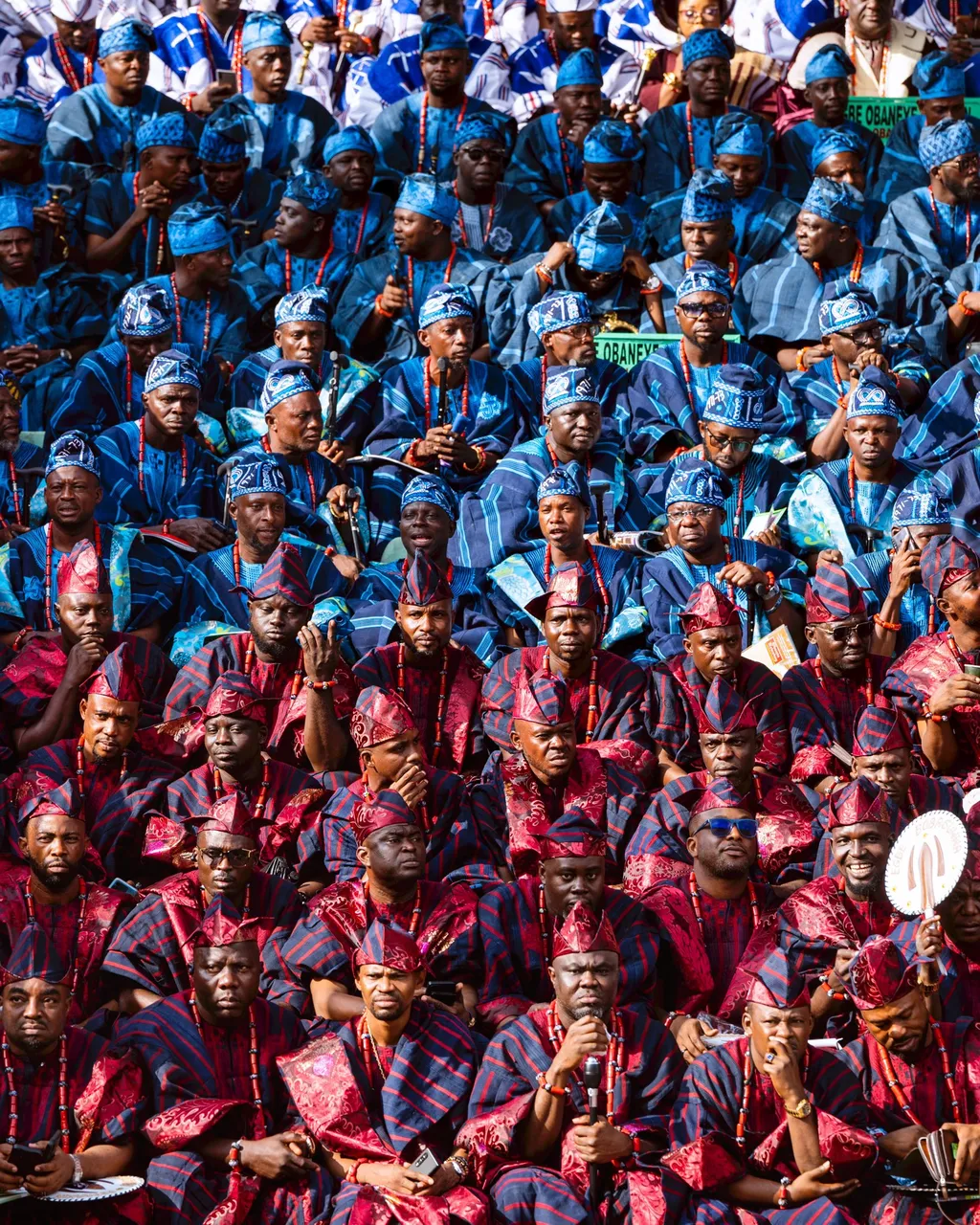
Groups of participants at the Ojude Oba festival
Nigeria is endowed with a significant number of diverse ethnic groups, each having its own unique culture and typically residing in specific regions of the country. Most of these ethnic groups have long-standing customs. Some of the customary practices upheld by these ethnic groups include the celebration of special events such as religious rites, marriage ceremonies, memorials, and festivals, to mention a few. These events usually hold significant importance for members of these ethnic groups and foster unity among them. One such event commonly celebrated by the Ijebus, a subdivision of the Yoruba ethnic group, is the Ojude Oba festival.
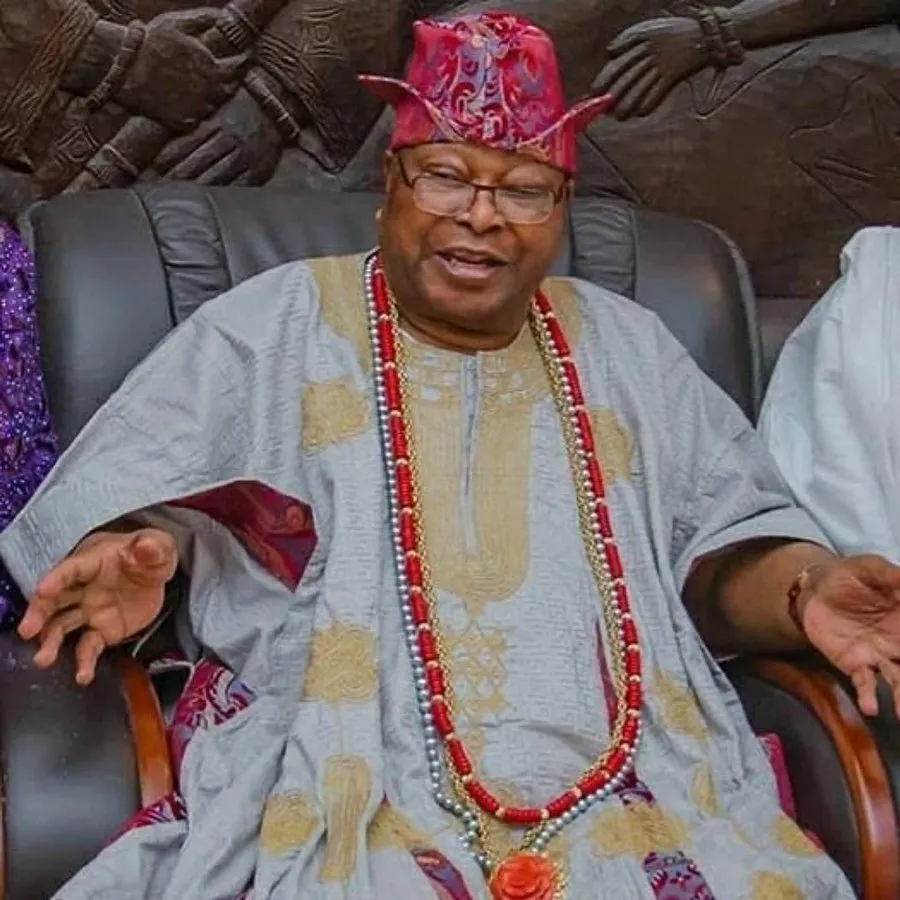
Oba Sikiru Kayode Adetona, The present Awujale of Ijebu Ode
The Ojude Oba festival is an elaborate event that takes place yearly in the town of Ijebu Ode, in the southwestern region of Nigeria. The history of the festival dates back a century. It succeeded the old and widely celebrated Odeda festival, which revolved around the entertainment of the Awujale of Ijebu (King of Ijebu Ode) by devotees of traditional religions such as Ogun and Sango. The Ojude Oba festival was originally initiated by indigenous Muslims of Ijebu Ode as a way to pay homage to their king for allowing them to practice their religion without hostilities. However, as time progressed, the flamboyant nature of the festival caught the interest of other indigenes of different religious beliefs, who subsequently participated in it.
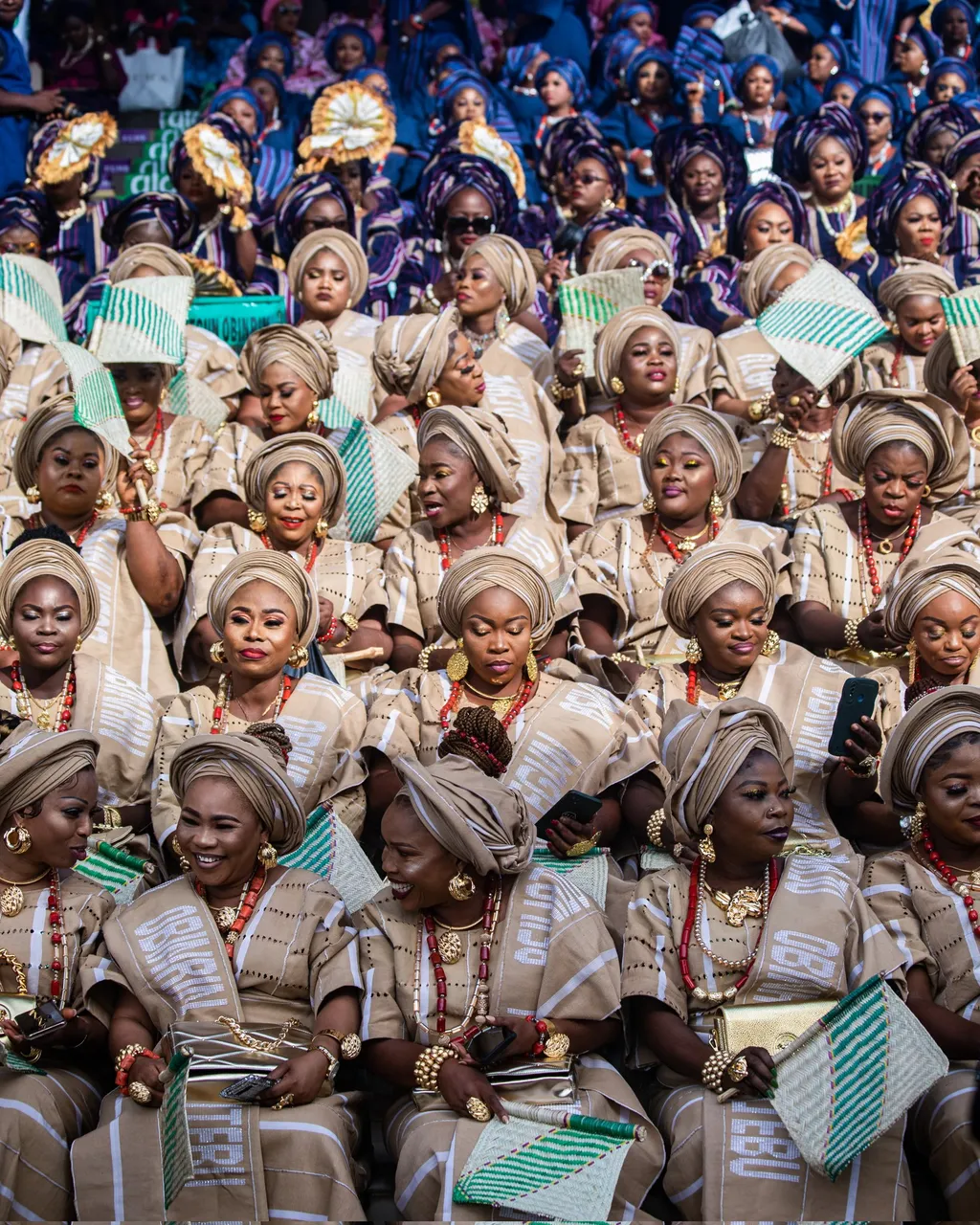
A cross-section of participants at the festival
Participation in the Ojude Oba festival by the indigenous people of Ijebu Ode and foreigners has grown significantly over the years. Although the theme of the festival, paying homage to the king, has been maintained, other activities such as horse parades and exhibitions of local fashion and arts have also become integral parts of the event.
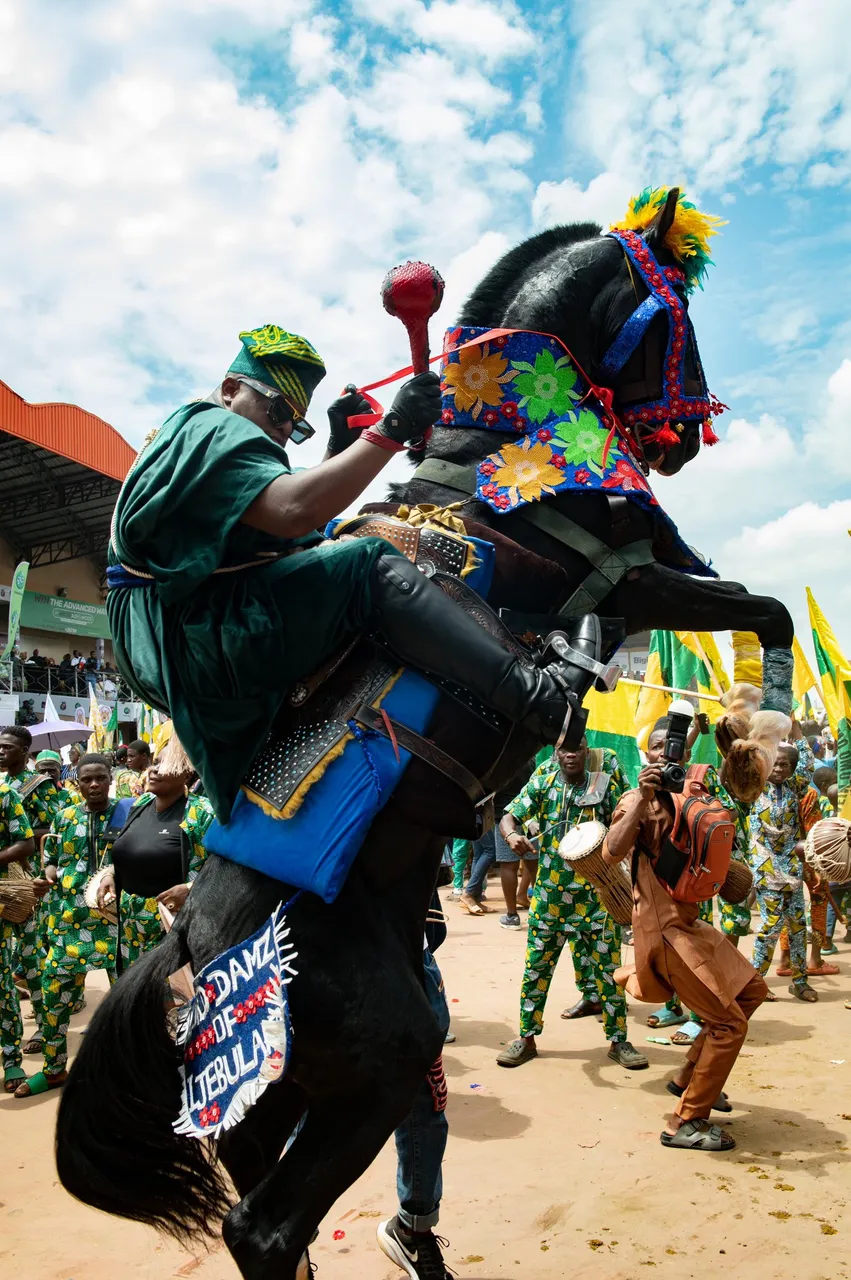
A Horseman from one of the Balogun families demonstrating his horse-riding skills
Some prominent families from Ijebu Ode, known as the Baloguns, play crucial roles in activities such as horse parades during the festival. Horsemen from these families entertain the king and the audience with their amazing horse-riding skills. They also eulogise the king and predecessors of horsemen from their families during the demonstrations.
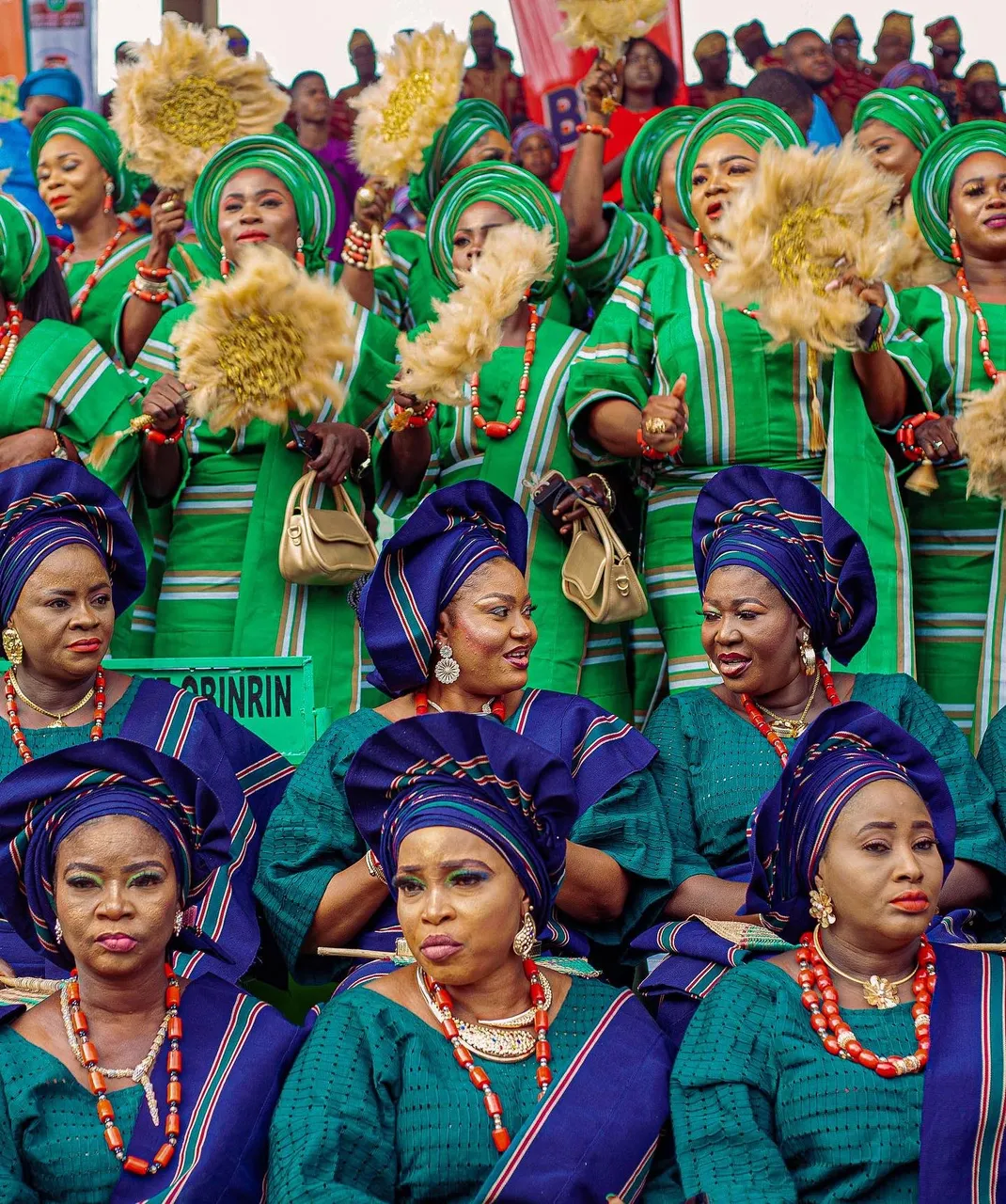
Participants at the festival within the same age group dress uniformly and are known as "Regberegbe"
Furthermore, indigenous families closely involved in the festival since its inception and other participants dress elaborately in native attire for the event. The colourful display of these dresses by both men and women has become a focal point of the festival. A special practice is also observed by these well-dressed participants. Individuals within the same age group, locally known as "Regberegbe" by the Ijebus, put on the same native attire and move together as a group during the festival. This practice is a traditional method of social classification that helps participants identify each other.
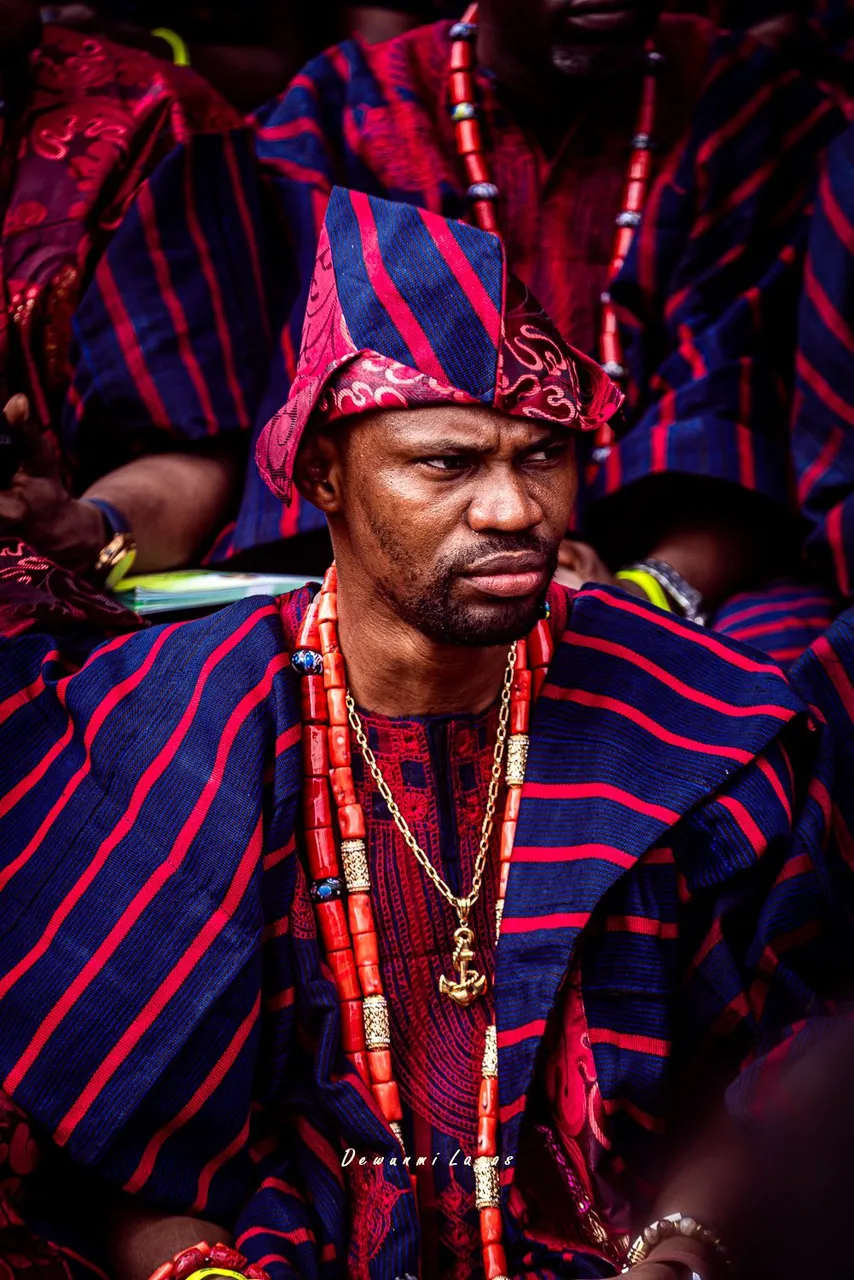
A colourful Aso Oke fabric worn by a member of a "Regberegbe (Age group)"
The local arts and crafts of Ijebu Ode are also showcased during the festival. The indigenes of the town are renowned for making local fabrics such as Aso Oke, which is commonly worn during the festival, adding to its colorful appearance. Local bead makers also exhibit their crafts during the festival, as many attendees wear beads as accessories to complement their dresses. The intricate work of local saddlers is also showcased at the festival through the saddles atop the horses ridden at the event.
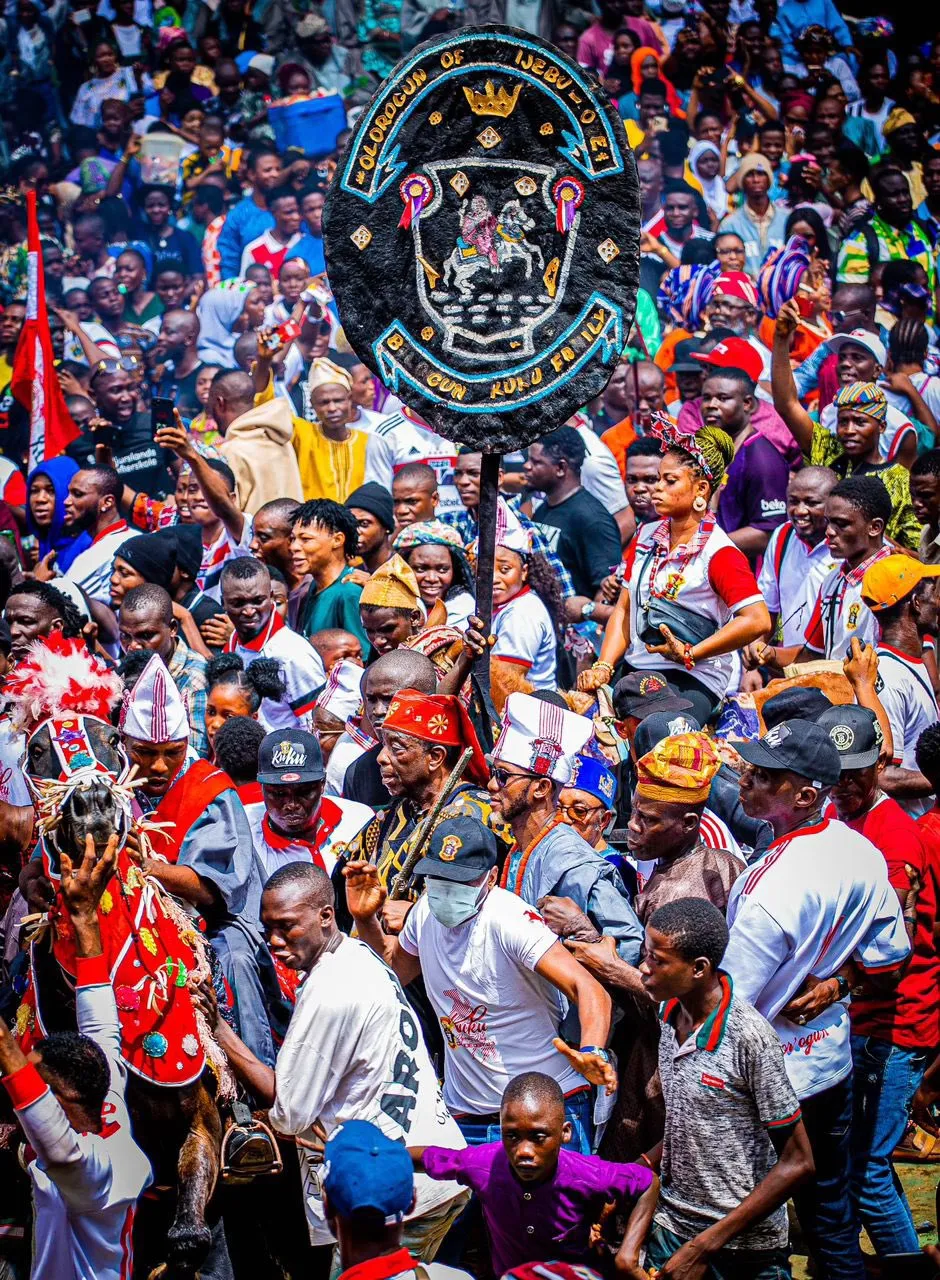
The crowd of people at the Ojude Oba festival
The pomp and circumstance of the Ojude Oba festival have made it one of the most highly attended and anticipated events in southwestern Nigeria. Its showcase of the rich culture of the Ijebus has been a source of attraction to tourists from within and outside Nigeria. The Ojude Oba festival is an event that promotes Nigeria's rich and diverse culture and encourages Nigerians to be proud of their heritage.
Thanks for reading,
Have a splendid day folks.
credit: click photo caption for image source.